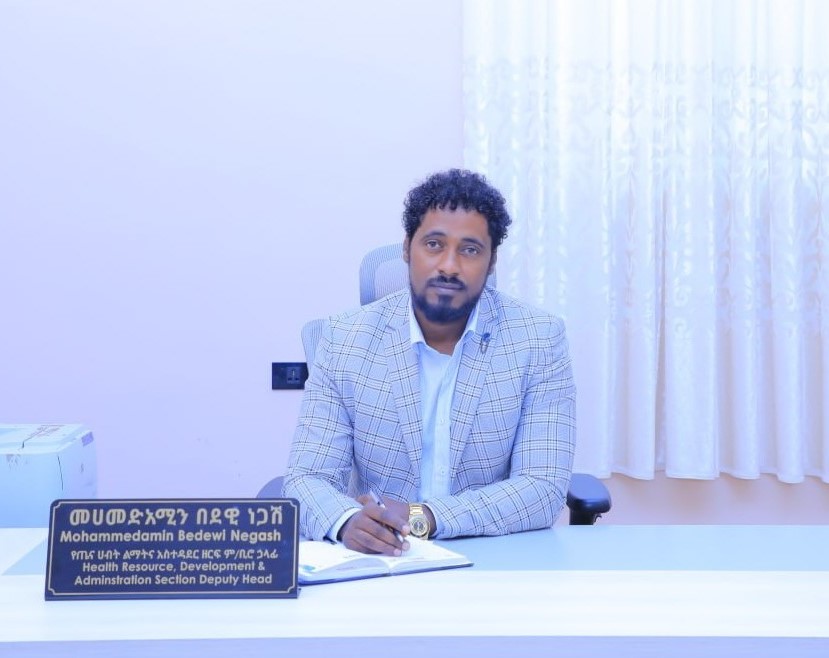Health Resource, Development & Administration Section

The Health Resource, Development, and Administration Section of the Central Ethiopia Regional Health Bureau is dedicated to the strategic planning, development, management, and administration of health resources, ensuring a well-functioning and sustainable healthcare system in the region. This section plays a vital role in maintaining the availability, equitable distribution, and optimal utilization of human, financial, and material resources essential for delivering quality healthcare services.
Its core responsibilities encompass human resource planning and development, focusing on workforce capacity building and equitable deployment of health professionals. Through health workforce management and administration, it ensures the efficient recruitment, retention, and performance monitoring of healthcare personnel.
The section also oversees health infrastructure development, ensuring the construction, expansion, and maintenance of healthcare facilities to meet community needs. Additionally, it is responsible for health technology and equipment management, ensuring the procurement, distribution, and maintenance of essential medical devices and innovations to enhance service delivery. Read More
To sustain healthcare financing, the section implements health financing and resource mobilization strategies, securing funds through government budgets, donor contributions, and insurance schemes to support healthcare programs. Lastly, it plays a crucial role in governance and leadership in health resource management, promoting transparency, accountability, and strong institutional leadership to drive effective decision-making and sustainable resource utilization.
Through these strategic efforts, the section ensures a resilient and responsive healthcare system that meets the evolving needs of the Central Ethiopia Region.
Main Activities of the Health Resource, Development, and Administration Section
👥 Human Resource Development and Management
- Conduct workforce needs assessments to guide recruitment and deployment strategies.
- Facilitate health professional licensing, accreditation, and continuing education programs.
- Implement staff motivation, retention, and performance appraisal mechanisms.
🏥 Health Facility Infrastructure Development
- Identify and prioritize areas in need of new health facilities.
- Develop master plans for the construction and expansion of health centers and hospitals.
- Oversee the implementation of quality standards in health infrastructure projects.
⚙️ Procurement and Maintenance of Health Equipment
- Assess and identify gaps in medical equipment availability.
- Develop procurement guidelines and ensure fair distribution of health equipment.
- Strengthen maintenance systems to ensure optimal functionality of medical devices.
💰 Financial Resource Management
- Develop budgets and ensure timely allocation of health funds to various programs.
- Implement financial tracking and auditing mechanisms to prevent mismanagement.
- Promote community-based health insurance and other innovative financing models.
🤝 Health Sector Partnership and Collaboration
- Coordinate with governmental and non-governmental organizations to mobilize additional resources.
- Strengthen public-private partnerships to expand access to health services.
- Facilitate knowledge-sharing forums and capacity-building initiatives.
📊 Monitoring, Evaluation, and Quality Assurance
- Develop key performance indicators for health resource management.
- Conduct periodic assessments and audits to ensure efficiency and effectiveness.
- Implement corrective actions based on evaluation findings to enhance health system performance.

